236 start with B start with B
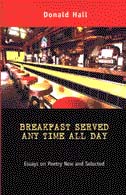
Praise for Breakfast Served:
". . . the essays in this book are engaging, passionate, strange, and unified. Hall has been around a long time, and you can trace the concerns of a generation through the mind of this one man: questions about the diminished scope of poetry, the diminished ambitions of poets, how a poem 'means,' etc. . . . . Criticism . . . is an exercise in sanity, of which these essays are a splendid and useful example."
-Poetry
"A luminous and essential volume about the sensuality of language, its pleasures and sounds."
-Ploughshares
"It is in this merger of a poet's biography and a poem's body that Hall does his best work. . . . [Breakfast Served Any Time All Day] has an undeniably infectious quality to it. Finishing it, you cannot help but want to return to your bookshelf, and read-again or for the first time-the great forgotten poems of our past."
-Nathan Greenwood Thompson, Rain Taxi
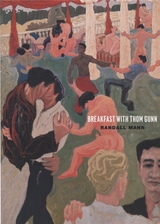
Aubade
Those who lack a talent for love have come
to walk the long Pier 7. Here at the end
of the imagined world are three low-flying gulls
like lies on the surface; the slow red
of a pilot’s boat; the groan
of a fisherman hacking a small shark—
and our speech like the icy water, a poor
translation that will not carry us across.
What brought us west, anyway? A hunger.
But ours is no Donner Party, we who feed
only on scenery, the safest form
of obfuscation: see how the bay is a gray
deepening into gray, the color of heartbreak.
Randall Mann’s Breakfast with Thom Gunn is a work both direct and unsettling. Haunted by the afterlife of Thom Gunn (1929–2004), one of the most beloved gay literary icons of the twentieth century, the poems are moored in Florida and California, but the backdrop is “pitiless,” the trees “thin and bloodless,” the words “like the icy water” of the San Francisco Bay. Mann, fiercely intelligent, open yet elusive, draws on the “graceful erosion” of both landscape and the body, on the beauty that lies in unbeauty. With audacity, anxiety, and unbridled desire, this gifted lyric poet grapples with dilemmas of the gay self embroiled in—and aroused by—a glittering, unforgiving subculture. Breakfast with Thom Gunnis at once formal and free, forging a sublime integrity in the fire of wit, intensity, and betrayal.
Praise for Complaint in the Garden
“We have before us a skillful, witty, passionate young poet. . . . Randall Mann is both attuned to and at odds with the natural world; he articulates the passions and predicaments of a self inside a massive, arousing, but sometimes brutal culture. And he accomplishes these things with buoyant lyric sensibilities and rejuvenating skills.”—Kenyon Review
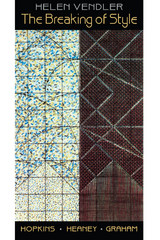
Style is the material body of lyric poetry, Helen Vendler suggests. To cast off an earlier style is to do an act of violence to the self. Why might a poet do this, adopting a sharply different form? In this exploration of three kinds of break in poetic style, Vendler clarifies the essential connection between style and substance in poetry. Opening fresh perspectives on the work of three very different poets, her masterful study of changes in style yields a new view of the interplay of moral, emotional, and intellectual forces in a poet’s work.
Gerard Manley Hopkins’ invention of sprung rhythm marks a dramatic break with his early style. Rhythm, Vendler shows us, is at the heart of Hopkins’ aesthetic, and sprung rhythm is his symbol for danger, difference, and the shock of the beautiful. In Seamus Heaney’s work, she identifies clear shifts in grammatical “atmosphere” from one poem to the next—from “nounness” to the “betweenness” of an adverbial style—shifts whose moral and political implications come under scrutiny here. And finally Vendler looks at Jorie Graham’s departure from short lines to numbered lines to squared long lines of sentences, marking a move from deliberation to cinematic “freeze-framing to coverage, each with its own meaning in this poet’s career.
Throughout, Vendler reminds us that what distinguishes successful poetry is a mastery of language at all levels—including the rhythmic, the grammatical, and the graphic. A fine study of three poets and a superb exposition of the craft of poetry, The Breaking of Style revives our lapsed sense of what style means.
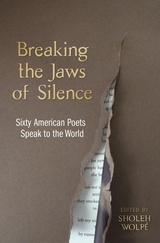
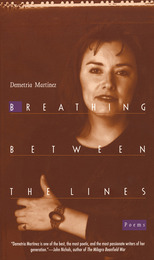
Weaving together threads of love and family, social conviction and activism, loss and renewal, Breathing between the Lines carries the reader deep inside the head and heart of a talented Chicana writer. Page by page, the journey is an exhilarating one. What we find at the end is up to us.
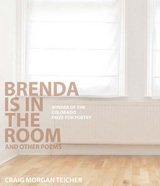
Published by the Center for Literary Publishing at Colorado State University
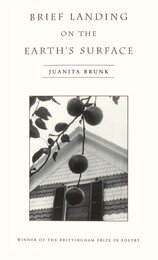
In Brief Landing on the Earth’s Surface, even the most ordinary moments are infused with an awareness of the lost past and a kind of prescience of the future. From one setting to another—Tidewater Virginia, rural Pennsylvania, Greece, New York City—these poems give voice to the human longing for permanence, home, and connection in the face of a constantly changing reality.
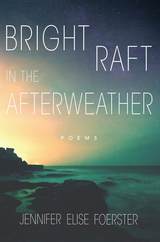
Featuring recurring characters, settings, and motifs from her previous book, Leaving Tulsa, Foerster takes the reader on a solitary journey to the edges of the continents of mind and time to discover what makes us human. Along the way, the author surveys the intersection between natural landscapes and the urban world, baring parallels to the conflicts between Native American peoples and Western colonizers, and considering how imagination and representation can both destroy and remake our worlds.
Foerster’s captivating language and evocative imagery immerse the reader in a narrative of disorientation and reintegration. Each poem blends Foerster’s refined use of language with a mythic and environmental lyricism as she explores themes of destruction, spirituality, loss, and remembrance.
In a world wrought with ecological imbalance and grief, Foerster shows how from the devastated land of our alienation there is potential to reconnect to our origins and redefine the terms by which we inhabit humanity and the earth.
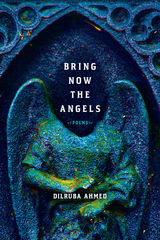
With poems that are by turns elegiac, biting, and tender, Bring Now the Angels conveys a desire to move toward transformation and rebirth, even among seemingly insurmountable obstacles: chronic disease, corporate greed, environmental harm, and a general atmosphere of anxiety and violence.
BRING NOW THE ANGELS
To test your pulse as you sleep.
Bring the healer the howler the listening ear—
Bring an apothecary to mix the tincture—
We need the salve
the tablet the capsule
of the hour— Bring sword-eaters
and those who will swallow fire—
Fetch the guardian
to flatten the wheelchair,
to hoist it toward heaven:
the public shuttle awaits
the ceaseless trips to the clinic.
To the bedside manner
summon witness: this medic’s
disdain toward patients the physician’s dismissal
of pain—
And call the druggist, again, to drug us senseless—
Bring a nomad to index our debts
tuck each invoice into broken walls
of regret— Call the cleric the clerk
the messengers divine—
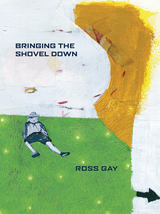
Bringing the Shovel Down is a re-imagination of the violent mythologies of state and power.
"These poems speak out of a global consciousness as well as an individual wisdom that is bright with pity, terror, and rage, and which asks the reader to realize that she is not alone--that the grief he carries is not just his own. Gay is a poet of conscience, who echoes Tomas Transtromer's 'We do not surrender. But want peace.'"
--Jean Valentine
"Ross Gay is some kind of brilliant latter-day troubadour whose poetry is shaped not only by yearning but also play and scrutiny, melancholy and intensity. I might be shocked by the bold, persistent love throughout Bringing the Shovel Down if I wasn’t so wooed and transformed by it."
--Terrance Hayes
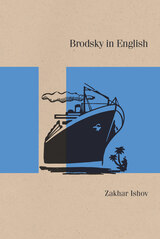
Joseph Brodsky’s translations of his own Russian-language poems into English “new originals” have been criticized for their “un-Englishness,” an appraisal based on a narrow understanding of translation itself. With this radical reassessment of the Nobel Prize winner’s self-translations, Zakhar Ishov proposes a fresh approach to poetry translation and challenges the assumption that poetic form is untranslatable.
Brodsky in English draws on previously unexamined archival materials, including drafts and correspondence with translators and publishers, to trace the arc of Brodsky’s experience with the English language. Ishov shows how Brodsky’s belief in the intellectual continuity between his former life in the Soviet Union and his new career in the United States, including as Poet Laureate, anchored his insistence on maintaining the formal architecture of his poems in translation, locating the transmission of poetic meaning in the rhythms of language itself. This book highlights Brodsky’s place within the long history of the compromises translation must make between linguistic material and poetic process.
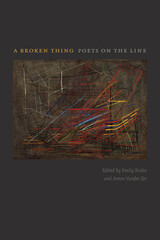
In the arena of poetry and poetics over the past century, no idea has been more alive and contentious than the idea of form, and no aspect of form has more emphatically sponsored this marked formal concern than the line. But what, exactly, is the line? Emily Rosko and Anton Vander Zee’s anthology gives seventy original answers that lead us deeper into the world of poetry, but also far out into the world at large: its people, its politics, its ecology. The authors included here, emerging and established alike, write from a range of perspectives, in terms of both aesthetics and identity. Together, they offer a dynamic hybrid collection that captures a broad spectrum of poetic practice in the twenty-first century.

as one of five volumes published in 1996 in the National Poetry Series
"Marcus Cafagña is a poet who shies at nothing, who will
not turn away from what he sees--ordinary people struggling against, and
sometimes breaking on, the wheel of their fate. The Broken World
is a deeply humane and accomplished first book--probing, watchful, compassionate,
and necessary."
-- Edward Hirsch
"I challenge anyone to be unmoved by The Broken World. Cafagña
never gives up in these difficult, heart-rending poems." -- Jim Daniels,
editor of Letters to America: Contemporary American Poetry on Race
The Broken World, the powerful debut of a poet of great depth
and maturity, begins with narratives of individuals caught up in circumstance--a
distressed girl on a Detroit overpass, a boy shooting baskets at a crisis
center. By the end of the slim volume, Marcus Cafagña has led us
through the postwar New York of Jewish Holocaust survivors to his native
Michigan, where his marriage ended tragically with his wife's suicide,
a death that has come to symbolize for Cafagña the confusion and
madness of the twentieth century.
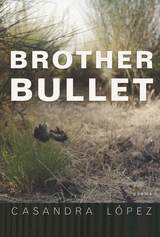
Drawing on migratory experiences, López transports the reader to the Inland Empire, Baja California, New Mexico, and Arizona to create a frame for memory, filled with imagery, through the cyclical but changing essence of sorrow. This is paralleled with surrounding environments, our sense of belonging—on her family’s porch, or in her grandfather’s orange grove, or in the darkest desert. López’s landscapes are geographical markers and borders, connecting shared experiences and memories.
Brother Bullet tugs and pulls, drawing us into a consciousness—a story—we all bear.
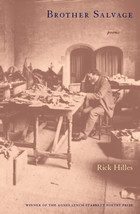
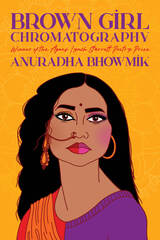
Anuradha Bhowmik’s life as a Bangladeshi-born American girl growing up as a first-generation immigrant in the United States gives shape to this debut collection. Brown Girl Chromatography interrogates issues of race, class, gender, and sexuality in a post-9/11 America while navigating the poet’s millennial childhood, adolescence, and adulthood. The poems follow Bhowmik as she learns about the cruelties in both American and Bangladeshi worlds without any guidance or instruction on how to survive these conflicting spheres. Any visible traces of her Bangladeshi life result in racial ridicule from her peers, while participating and assimilating into American culture is met with violence and abuse at home. As language and memory intersect, Bhowmik draws on pop culture and free association to examine her displacement from many angles and make meaning out of hurt.
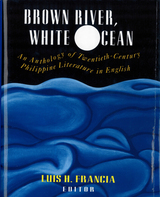


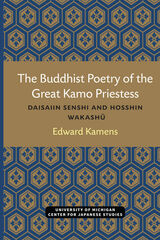
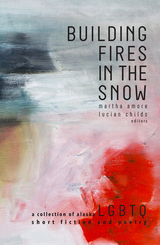
In these pages we see the panoply of LGBTQ life in Alaska today, from the quotidian urban adventures of a family—shopping, going out, working—to intimate encounters with Alaska’s breathtaking natural beauty. At a time of great change and major strides in LGBTQ civil rights, Building Fires in the Snow shows us an Alaska that shatters stereotypes and reveals a side of Alaska that’s been little seen until now.
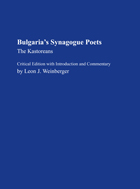
Critical Edition with introduction and commentary by Leon J. Weinberger
This is the first in-depth study of three 11th- to 12th-century poets from Balkan Byzantium. Included are all of the known works by Moses b. Hiyya, Joseph b. Jacob Qalai, and Isaac b. Judah, collected from rare manuscripts and printed editions and from Geniza collections at Oxford and Cambridge. These works provide the evidence that the Balkan synagogue poets favored distinctive literary forms even as they show the strong influence of the Hispanic-Hebrew writers. Completing the volume are indexes of rabbinic, Aramaic, and payyetanic usages and tables of metonymical terms.Published by the Hebrew Union College Press, distributed by The University of Alabama Press.
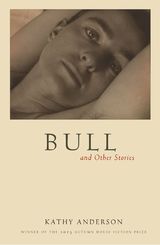

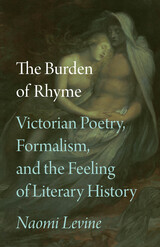
The Burden of Rhyme shows how the nineteenth-century search for the origin of rhyme shaped the theory and practice of poetry. For Victorians, rhyme was not (as it was for the New Critics, and as it still is for us) a mere technique or ahistorical form. Instead, it carried vivid historical fantasies derived from early studies of world literature. Naomi Levine argues that rhyme’s association with the advent of literary modernity and with a repertoire of medievalist, Italophilic, and orientalist myths about love, loss, and poetic longing made it a sensitive historiographic instrument. Victorian poets used rhyme to theorize both literary history and the most elusive effects of aesthetic form. This Victorian formalism, which insisted on the significance of origins, was a precursor to and a challenge for twentieth-century methods. In uncovering the rich relationship between Victorian poetic forms and a forgotten style of literary-historical thought, The Burden of Rhyme reveals the unacknowledged influence of Victorian poetics—and its repudiation—on the development of modern literary criticism.
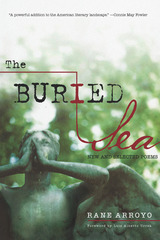
Reading Rane Arroyo’s poems is a little like watching a movie playing at fastforward speed on the TV in your darkened bedroom. The colors pop and snap, the images leap and recede, the colors seem brighter than life—and you can’t stop watching even long enough to blink. It’s an intimate experience. Even at hyperspeed you can make out the images of friends, family, and lovers (especially lovers) burning rubber across the unblinking screen. And even without a sound track, you can hear the music—a symphony of jazz and samba, salsa and street sounds.
In The Buried Sea, Arroyo has selected poems from his first eleven books—five full-length collections of poems and six chapbooks—and has added nineteen new poems. When asked to describe himself, Arroyo writes that “the answer is easy: I’m a Puerto Rican, gay, Midwestern, educated, former working class, liberal, atheistic, humanist, American, male, ex-Mormon, ex-Catholic, pseudo-Buddhist, teacher, reader, global, and popular culture—informed poet.” Readers will find traces of all of these selves in this collection. And Arroyo does make it “easy” to follow the clues. His poems—vivacious, sexy, shiny, sly, pointed, ambitious—are easy to approach and easy to love. But they come with strings attached—like all affairs of the heart—and therein lies so much of their pleasure.

A lyrical meditation on time, survival, and merciful moments of joy
Sara Henning’s Burn draws readers deep into the moments that make us, focusing on instances of crisis and renewal to explore our relation to time and lived experience. In these poems, we follow a speaker as she works through the loss of young love, the death of her parents, marriage’s hardness and beauty, sexual assault, and the devastation of a pandemic—evolutions of trauma that fracture time and alter perception. Twinned with these extremes are shimmering manifestations of joy only an imperfect world can make possible.
Burn magnifies the way time leaves us both the victim and the victor of our realities. The blaze of her late-mother’s Tiffany lamps sends the speaker back to childhood, where she unearths mica from the schoolyard dirt. The devastation of an ecological crisis, the annihilating act of rape, and the unsolved disappearance of a caretaker all level the speaker’s world and upend her place in it, forcing her to reconstitute reality from what remains. In poems which summon the spirit of Stephen Hawking’s A Brief History of Time, this collection walks through the physics of temporality as refracted through love, loss, and grief, so we better understand its effect on our lives. Through this insight, Henning introduces a new way of being in the world.
A work of advocacy and uplift, Burn shines with the vibrant possibilities of narrative lyric poetry as it forges a path from grief to hope.
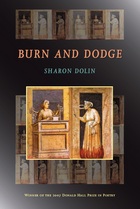
WINNER OF THE 2007 DONALD HALL PRIZE IN POETRY
Selected by Bob Hicok
Burn and Dodge is part serious/part serious play and opens with a frank and occasionally antic exploration of contemporary vices, such as Guilt, Envy, and Regret. Some poems “dodge” such preoccupations by playing with a nonce form called sonnet/ghazal. The collection contains a sequence of poems called “Current Events,” based on newspaper stories. that is also a playful meditation on the nature of the interrogative pronouns (Who, What, Where, When . . . ) as well as another series of homophonic sonnets called “Clare-Hewn,” which are aural “translations” of John Clare.
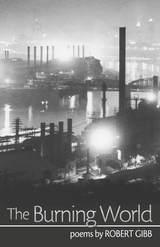
These lyrical and devastatingly beautiful poems are powerful in both their ability to evoke the past and in the poignancy of the losses they catalog, beginning with heartbreaking personal losses and extending into communal ones. Indeed, a book so freighted with loss and sadness might have deteriorated into maudlin nostalgia in lesser hands. But Gibb has elevated The Burning World to the level of tragedy, with all the dignity and severity that that word calls forth.

“Autumn wind, autumn rain, fill my heart with sorrow”—these were the last words of Qiu Jin (1875–1907), written before she was beheaded for plotting to overthrow the Qing empire. Eventually, she would be celebrated as a Republican martyr and China’s first feminist, her last words committed to memory by schoolchildren. Yet during her lifetime she was often seen as eccentric, even deviant; in her death, and still more in the forced abandonment of her remains, the authorities had wanted her to disappear into historical oblivion.
Burying Autumn tells the story of the enduring friendship between Qiu Jin and her sworn-sisters Wu Zhiying and Xu Zihua, who braved political persecution to give her a proper burial. Formed amidst social upheaval, their bond found its most poignant expression in Wu and Xu’s mourning for Qiu. The archives of this friendship—letters, poems, biographical sketches, steles, and hand-copied sutra—vividly display how these women understood the concrete experiences of modernity, how they articulated those experiences through traditional art forms, and how their artworks transformed the cultural traditions they invoked even while maintaining deep cultural roots. In enabling Qiu Jin to acquire historical significance, their friendship fulfilled its ultimate socially transformative potential.
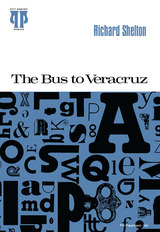
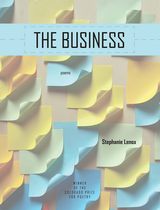
Winner of the 2015 Colorado Prize for Poetry
What does it mean to work in the age of the cubicle? The Business takes on the modern workplace with sharp-witted poems that sting like a paper cut. A former secretary, Stephanie Lenox positions herself as a poetic note-taker of the mundane. Organized by the classical components of Greek tragedy, these poems enact the relationships, heartbreaks, and small heroic efforts that make up our working lives. Think there's nothing poetic about annoying coworkers, endless meetings, and stained coffee mugs? Think again. While tragedy provides the organizational structure for this collection, humor plays a central role. This collection transforms office politics and paper clips into a funny and critical examination of the mortal rat race. If you've ever been fired, let go, unemployed, underemployed, or overlooked, these poems are for you. Begun on stolen reams of printer paper, this book reclaims the hours of our lives we give, out of necessity, to others in order to survive.
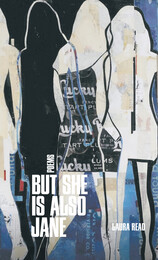
Conversational, irreverent, and disarmingly honest, the poems of But She Is Also Jane follow the everyday contours of women’s lives and the expectations they grapple with. As our speaker approaches middle age, she copes with the loss of loved ones, the realities of an emptying nest, the routine indignities of sexism, and nostalgia for the past. Laura Read’s third poetry collection balances discussions of Degas, Vermeer, and Marie Curie with reflections on Sammy Hagar, a troubling outing to a male revue, and memories of watching Mork and Mindy on the night of her mother’s hysterectomy.


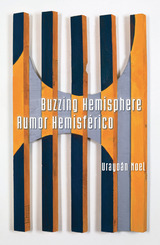
In this expansive collection, we hear the noise of cities such as New York, San Juan, and São Paulo abuzz with flickering bodies and the rush of vernaculars as untranslatable as the murmur in the Spanish rumor. Oscillating between baroque textuality and vernacular performance, Noel’s bilingual poems experiment with eccentric self-translation, often blurring the line between original and translation as a way to question language hierarchies and allow for translingual experiences.
A number of the poems and self-translations here were composed on a smartphone, or else de- and re-composed with a variety of smartphone apps and tools, in an effort to investigate the promise and pitfalls of digital vernaculars. Noel’s poetics of performative self-translation operates not only across languages and cultures but also across forms: from the décima and the “staircase sonnet” to the collage, the abecedarian poem, and the performance poem.
In its playful and irreverent mash-up of voices and poetic traditions from across the Americas, Buzzing Hemisphere / Rumor Hemisférico imagines an alternative to the monolingualism of the U.S. literary and political landscape, and proposes a geo-neuro-political performance attuned to damaged or marginalized forms of knowledge, perception, and identity.
READERS
Browse our collection.
PUBLISHERS
See BiblioVault's publisher services.
STUDENT SERVICES
Files for college accessibility offices.
UChicago Accessibility Resources
home | accessibility | search | about | contact us
BiblioVault ® 2001 - 2024
The University of Chicago Press









